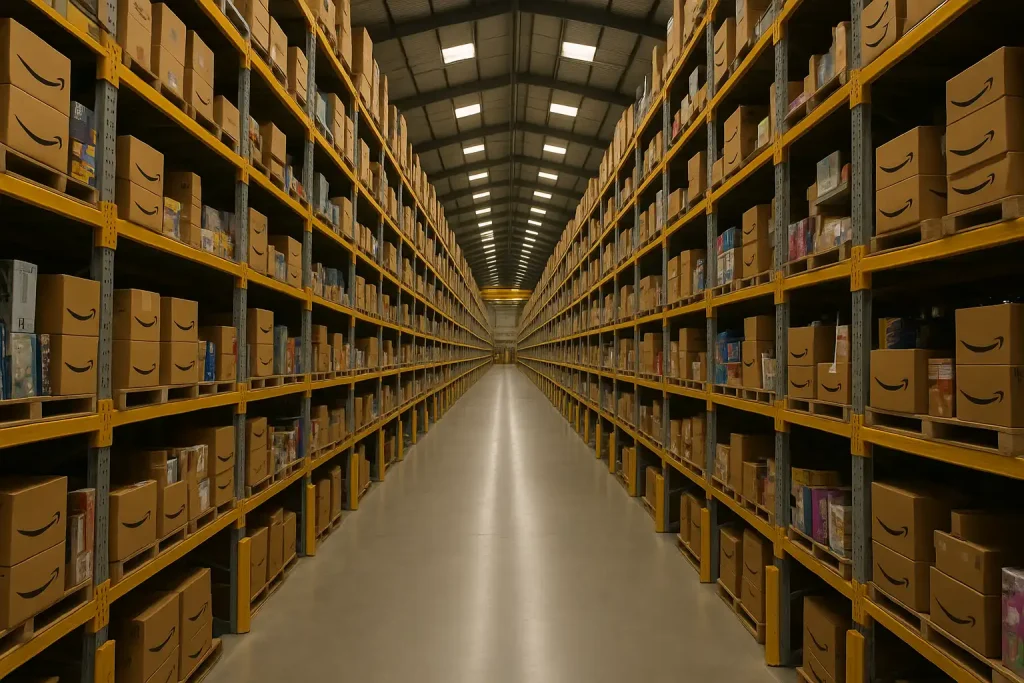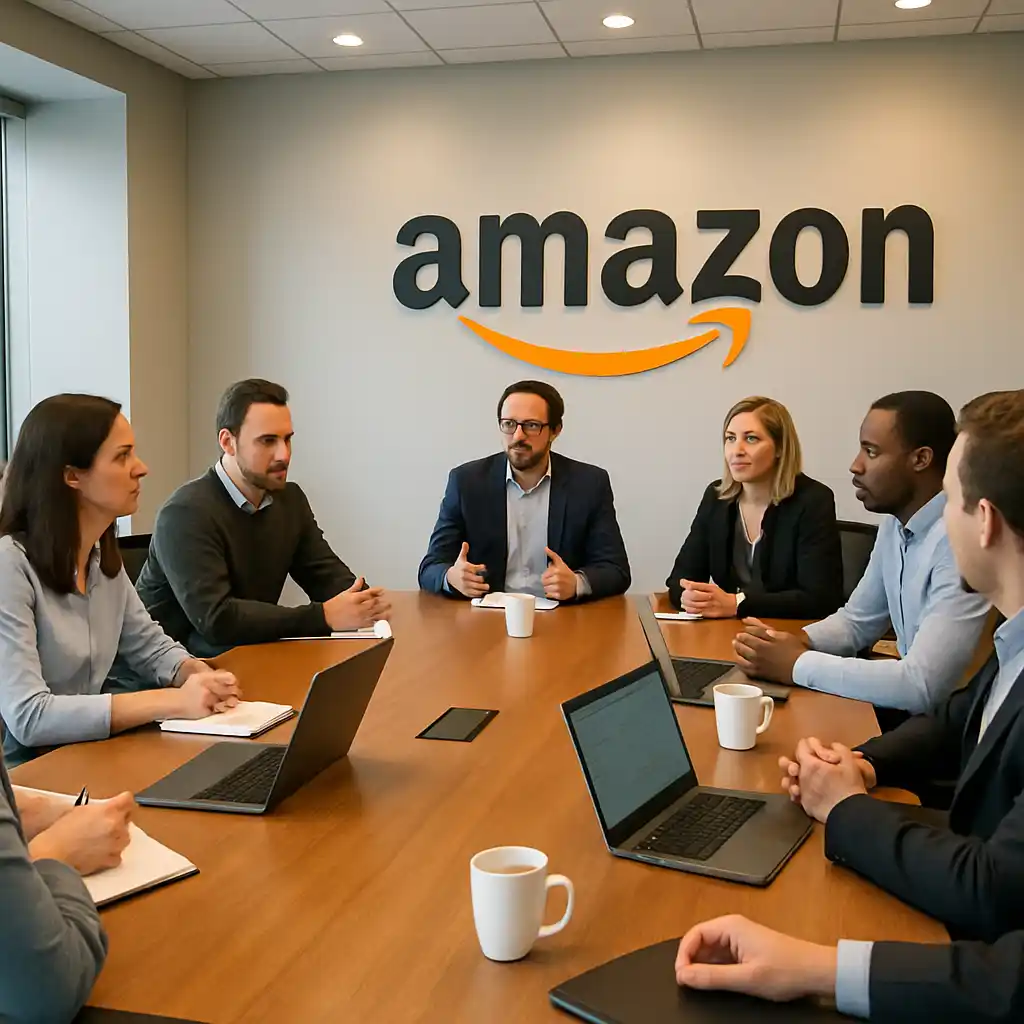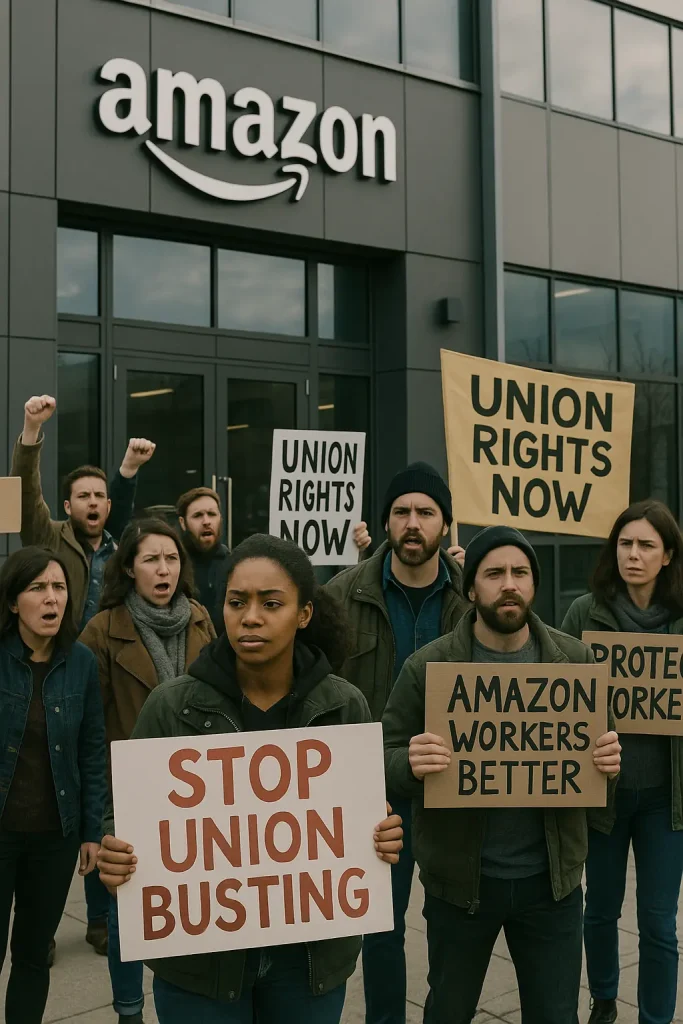Introduction
Amazon leads globally in e-commerce and cloud computing. Consequently, it has changed how we shop and use technology. But who owns Amazon, the company behind this shift? Jeff Bezos founded Amazon in 1994. Moreover, he remains its largest individual shareholder. Bezos’ journey took Amazon from a garage to a trillion-dollar empire. As of April 2025, his influence still shapes Amazon. Thus, this article explores Bezos’ life, his role in Amazon, its growth, and criticisms faced.

Early Life of Jeff Bezos
Jeff Bezos was born on January 12, 1964, in Albuquerque, New Mexico. His parents were Jacklyn Gise and Ted Jorgensen. They separated early. Subsequently, his mother married Miguel Bezos, a Cuban immigrant. Miguel adopted Jeff and gave him his surname. Bezos grew up in Houston and later moved to Miami, where he developed his interests. He loved science and technology. For example, he often tinkered with gadgets at his grandparents’ Texas ranch. Who owns Amazon today began as this curious child. Meanwhile, Bezos attended Princeton University. He graduated summa cum laude in 1986. His degrees were in electrical engineering and computer science.
Bezos worked on Wall Street early on. Specifically, he joined D.E. Shaw & Co. and became its youngest senior vice president by 1990. However, the internet’s rise caught his attention. He saw its potential and thus left his job in 1994. This risky move answered who owns Amazon. Therefore, Bezos started an online bookstore. It would soon change global commerce.

Founding of Amazon
Jeff Bezos founded Amazon in 1994 from his garage in Bellevue, Washington. He first named it Cadabra. Later, however, he rebranded it to Amazon, inspired by the Amazon River. Who owns Amazon began with this vision. Bezos saw the internet’s commerce potential. In fact, he predicted a 2300% annual growth in web usage. Amazon started as an online bookstore. Moreover, it sold its first book in July 1995. The book was Douglas Hofstadter’s Fluid Concepts and Creative Analogies. Bezos used $246,000 from his parents to build the platform. Thus, he focused on customer experience with low prices and vast selection.
Amazon went public in 1997. It faced early skepticism but survived the dot-com bust. By 2003, therefore, it turned its first annual profit. This proved its model worked. Bezos’ vision of “The Everything Store” grew. As a result, Amazon expanded into electronics, apparel, and more. Bezos became the answer to who owns Amazon. He holds around 9% of shares as of March 2024. This stake is worth about $166 billion.

Jeff Bezos’ Role in Amazon
Who owns Amazon in terms of influence? Jeff Bezos has been the driving force. He founded Amazon and serves as executive chairman. Initially, he was CEO from 1994 to 2021. In 2021, however, he stepped down to focus on Blue Origin. Andy Jassy took over as CEO. Yet, Bezos remains the largest individual shareholder. He also retains control over Amazon’s strategy. His focus on customers, long-term thinking, and innovation shaped Amazon’s culture.
Under Bezos, Amazon’s revenue grew fast. For instance, it went from $510,000 in 1995 to $233 billion in 2018. By October 2024, its market cap hit $1.96 trillion. Bezos’ stake makes him central to who owns Amazon. Meanwhile, institutional investors like Vanguard (7.42%) and BlackRock (6.04%) also hold shares. But Bezos diversified Amazon into cloud computing and media. Consequently, Amazon Web Services (AWS) now drives most of the company’s profits.

Expansion and Innovations
Bezos’ vision for Amazon went beyond books. In 2006, for example, he launched AWS. This revolutionized cloud computing. Amazon became a tech giant. The Kindle e-reader debuted in 2007. It changed publishing. Kindle book sales surpassed hardcover by 2010. Amazon, under Bezos’ leadership, pioneered Amazon Prime in 2005. Prime offered fast shipping. Later, Prime Video entered the streaming market. Moreover, Bezos led acquisitions like Whole Foods in 2017. It cost $13.7 billion and expanded Amazon’s retail presence. He also backed the $1 billion Lord of the Rings TV series.
Amazon faced criticism under Bezos’ leadership. For instance, workers reported tough conditions in warehouses. A 2021 Guardian investigation noted inadequate breaks and high injury rates. Additionally, Amazon faced monopoly accusations. The U.S. Federal Trade Commission sued in 2023. It alleged anti-competitive behavior in Amazon’s marketplace. These issues highlight the challenge of balancing growth with ethics.
Amazon’s innovations under Bezos include Alexa and Echo devices. It built a strong logistics network. By 2024, thus, most packages were delivered by its own employees. Net sales reached $575 billion in 2023. Despite controversies, Bezos’ growth focus defined Amazon. He later stepped back for philanthropy and space exploration. Specifically, the Bezos Earth Fund and Blue Origin are his new ventures.

Leave a Reply